Auction houses are like search ships who retrieve lost treasure chests that throw up heritage and wealth, beyond money. From Bombay of the 1800s to a Bomb Coin, Kanika Sharma stumbles upon rare curios from Mumbai's auction houses
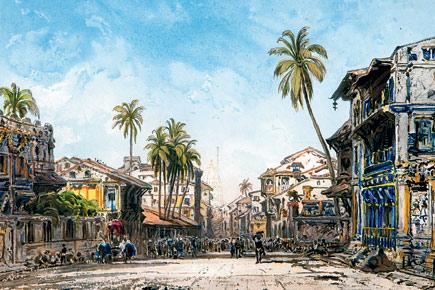
Bombay
Although the first auctions were held somewhere around 500BC, personalities still flock and are mesmerised with the tradition of bidding antiques for owning a part of history or popular lore for themselves, is a rare opportunity. For instance, it was celebrity couple Aamir Khan and Kiran Rao who bought Shammi Kapoor’s famous brown jacket for Rs 88,000. Worn in the film, Kashmir Ki Kali, the changing of hands of the iconic jacket definitely made the headlines.
ADVERTISEMENT
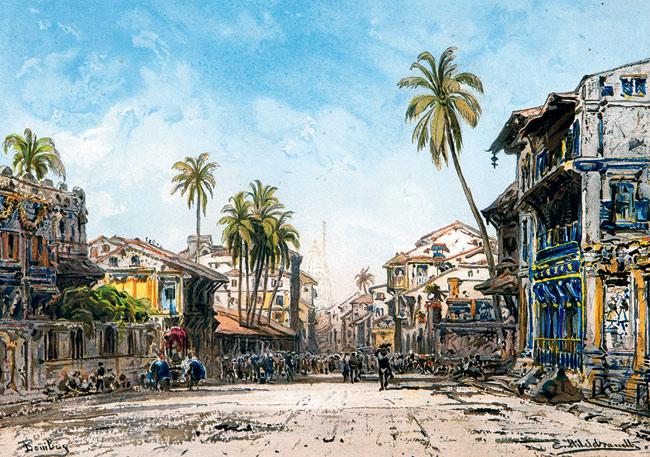
A chromolithograph that depicts a market place around Bhuleshwar-Kalbadevi area by noted German traveller and watercolourist Eduard Hildebrandt (1817-1869)
Last week, the city witnessed an intriguing auction where items that are also focussed upon here, “the Sholay coin, a handwritten and autographed letter by Mahatma” were sold at alluring prices (the coin went for Rs 26,000). Building on that, we found out rarities such as the Bomb coin, an autographed cricket bat and more from three major auction houses — Rajgor’s, Osian’s and Todywalla’s. Those interested can make the bids online and through SMS.
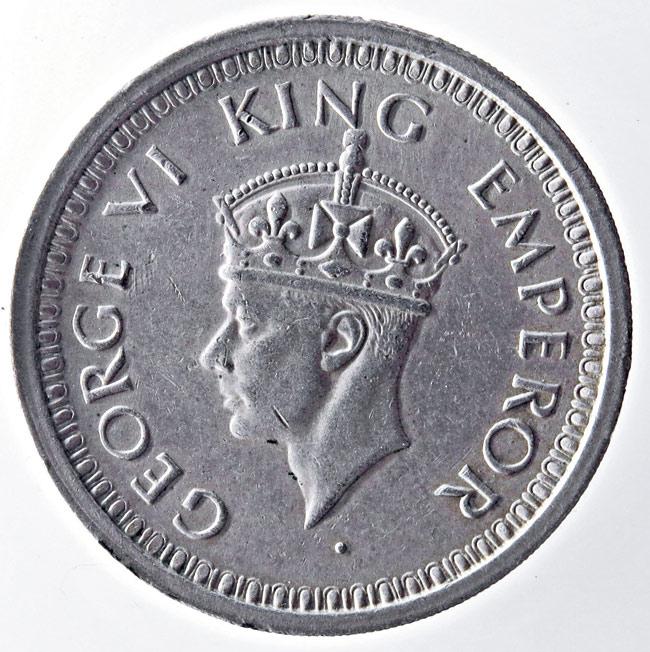
Sholay Coin
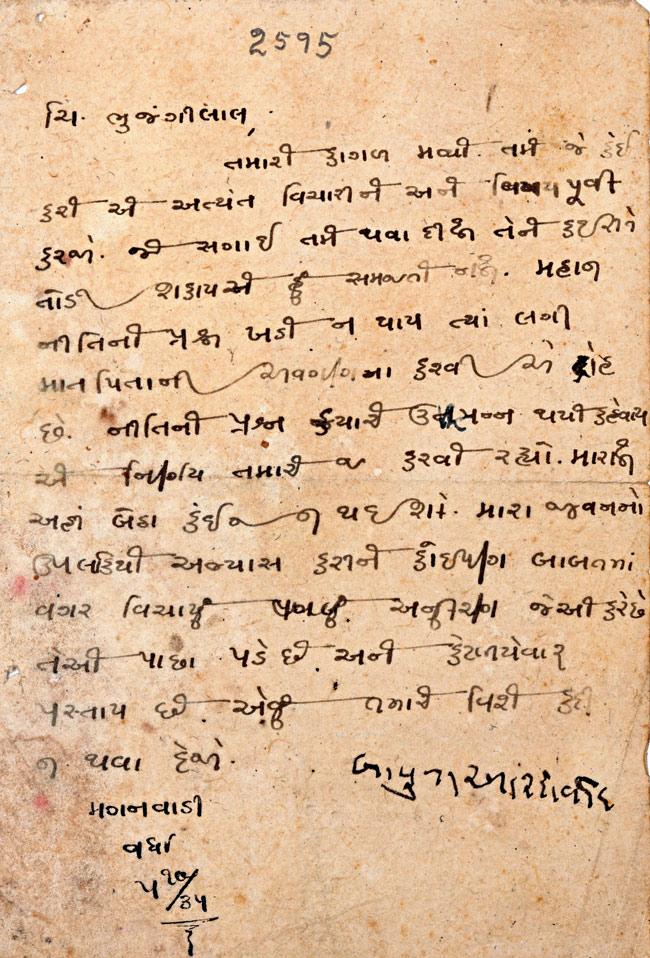
An autographed letter by Mahatma Gandhi to his relative, Bhujangilal K Chhaya. Pics COURTESY/RAJGOR’S
From popular lore at Osian’s
On the right is the cricket bat that has been autographed by the players of all the teams that participated in the 1985 World Championship of Cricket in Australia.
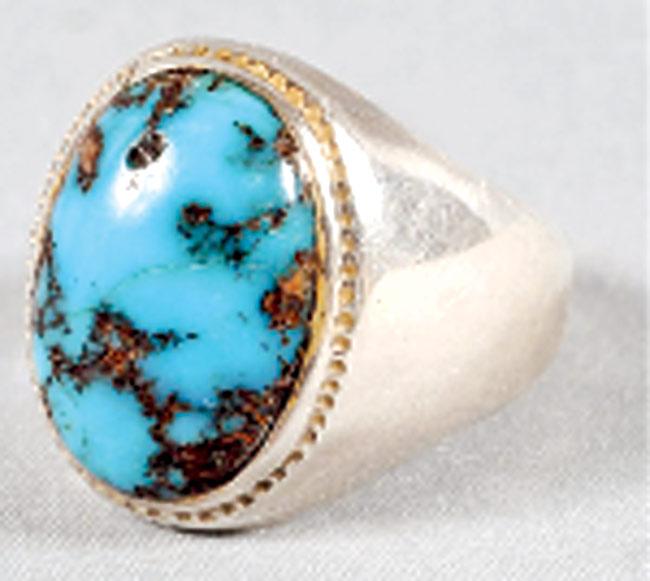
The object’d art is from the collection of legendary off-spinner EAS Prasanna that was sold for the highest price at the auction Rs 4,50,000.

Pics Courtesy/Osian’s
From Rajgor’s treasure trove
Morning View from Calliann, near Bombay was painted by WM Daniell RA from a Drawing by Capt Grindlay. Daniell’s lithograph of Kalyan Port is an interesting sight of the place in the 1880s. Dilip Rajgor, founder and owner of the auction house informs, “The beautiful lithograph of the late 19th century is an attractive piece of early printing world. The litho portrays the morning scene on the Arabian Port of Kalyan. It shows a mercantile boat being unloaded into a smaller boat, in the lower-left foreground; a number of sailing boats in the background in the sea; a lady passenger waiting for the boat with her luggage on her head and so on...” Reflecting on the background, it is pointed out that two mountains are shown while palm trees dot the scenic view in the foreground, a stark contrast from what Kalyan is now.
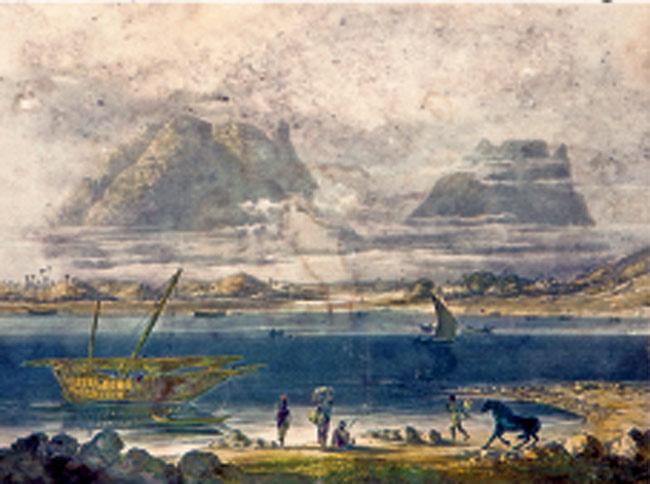
The hand-written and autographed letter of Mahatma Gandhi was written by him on 10th August 1935 from Wardha to Shri Bhujangilal K Chhaya. Rajgor shares, “Bhujangilal was a young relative of the Mahatma and was living during those days at the residence of Advocate of Porbandar State at Rajkot.” The document bears national and historical significance as Bapu defines dharma for his nephew in the below translation: “Do what your conscience tells you and your strength permits you to do. What others may advise is not one’s dharma. Dharma is what a man himself believes to be such. How can another man know our heart? You should, therefore, pray to God to help you recognize your path. He is the only true guide.”

The actual currency at Todywalla
Malcolm Todywalla, owner of the Todyawalla’s auction house shares that recently The Bomb Coin went under the hammer. “Bomb is an acronym for Bombay here. The coin piqued many people’s interest due to it’s peculiar name. Minted by the East India Company in the 1700s, the ancient coin shares how the city was perceived at least more than 300 years ago.
Pic Courtesy/Todywalia’s
From the cover
Though the Sholay coin (above) needs no introduction but Rajgor says, “The Silver 1 Rupee coin was originally issued by the British Emperor George VI, in the year 1944 or 1945 from the Bombay mint. However, the interesting part of this tooled coin is that on both the sides, it has portrait of the king, i.e. the Head side is on both the sides.”
>>> Hildebrandt’s Chromolithograph Of Bombay dates back to 1867. Rajgor categorises his style as Post-Impressionist and tells us that the traveller went on to paint different landscapes such as the Andes, the Himalayas, street bazaars of Cairo/ Suez, and cities like Bombay or Pekin.
>>>Mahatma Gandhi’s autographed letter was written by one of his assistants in Gujarati to his nephew, Bhujangilal Chhaya of Rajkot. The letter talks about an engagement of Bhujangilal who now wants to break it off.
 Subscribe today by clicking the link and stay updated with the latest news!" Click here!
Subscribe today by clicking the link and stay updated with the latest news!" Click here!







